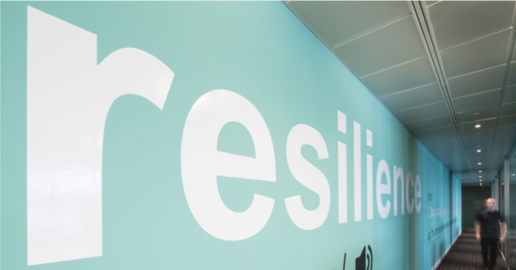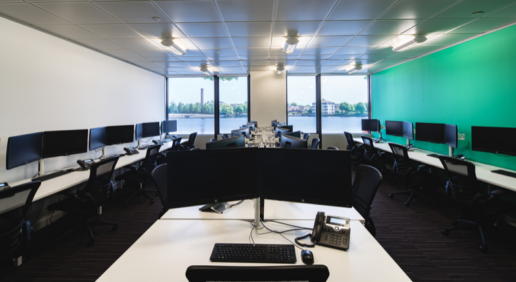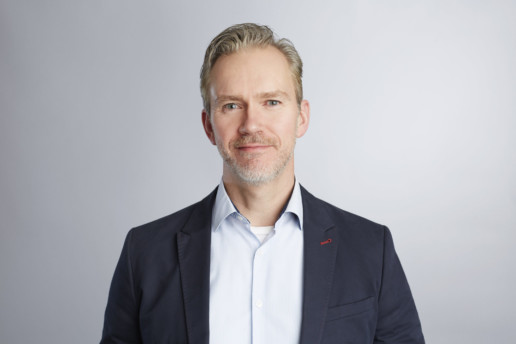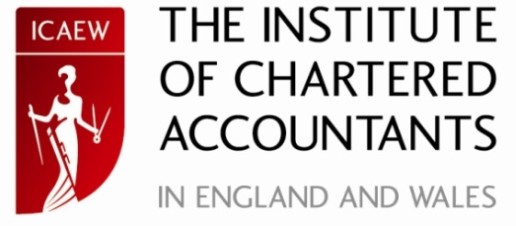The ICAEW Calculates Work Area Recovery is a sound investment
ICAEW has been at the heart of the accountancy profession since it was founded in 1880 to ensure trust in business. The respected professional body trains, develops and supports chartered accountants worldwide. It also performs an important regulatory role, being responsible for the registration and licensing of firms and individuals to conduct audits, manage insolvencies, carry out investment business, and handle probate.
Recognising the importance of business continuity in today’s always-on world, ICAEW invested in modern Work Area Recovery facilities from Fortress Availability Services to ensure it can continue to train and support its 150,000 members worldwide and fulfil its regulatory duties, whatever the nature of the interruption.
In addition to the traditional risks such as fire, floods, IT failure, denial of access and terrorism, the UK is now the most targeted region in the world for cyber threats following a 134% rise in hijacking attempts against British computers and soaring ransomware attacks. Today, no organisation is immune.
While there is no silver bullet, ICAEW actively encourages its members to mitigate risks by investing in disaster recovery planning and business continuity management (BCM) programmes. The organisation practises what it preaches and its own BCM provision has undergone a step change in recent years.

In addition to an office in Milton Keynes, ICAEW’s headquarters are based in the heart of London, which itself poses a heightened risk. With a reciprocal arrangement for redundant office space coming to an end and the volume of threats faced by British businesses rising exponentially, ICAEW made the decision to invest in a purpose-built alternative workplace from Fortress Availability Services.
This will allow its employees to continue providing an uninterrupted service to members despite the potential for disruption.
CEO Vernon Soare explains, “People sometimes don’t appreciate that BCM is as important for professional bodies like ours as it is for any commercial business. We’re a global organisation with turnover of £100m and around 150,000 members – 23,000 outside the UK – who rely on our services. We needed to invest to achieve a level of continuity and resilience provision commensurate with that to ensure we’re able to continue.

“People sometimes don’t appreciate that BCM is as important for professional bodies like ours as it is for any commercial business.”
Vernon Soare, CEO, ICAEW
Emergency Communications
Gary Johnston, ICAEW’s Head of Facilities, spearheaded the change. “Four years ago we were still relying on a call cascade system to communicate in a crisis, so my first priority was to implement a modern, automated system that would allow us to reach our employees quickly, wherever they are,”Gary Johnston explains.
Next, Johnston focused on improving the effectiveness of departmental business continuity planning, supported by an external consultant and small team who provide expert advice, templates and examples of good practice where needed.
“It’s all too easy when people are having a busy day to park BCM planning as something that’s not critical but the more people who are trained up, competent and truly understand business continuity, the better the speed and effectiveness of the recovery,”says Johnston. “Our departmental contingency plans are developed following thorough impact analyses and I can now safely say we’re confident they’re built on solid foundations.”

Alternative Workspace
Lastly, ICAEW decided to put in place a fall back facility for their London office, supported by a team of highly experienced Recovery Consultants, at Fortress Availability Services’ newly-built Work Area Recovery Centre at Crossharbour in London’s Docklands.
Equipped with the latest technology, this bright, airy and modern facility is within easy reach of ICAEW’s Moorgate offices and provides an agile and collaborative working environment for its Gold and Silver crisis management teams to convene in the event of an incident and manage the recovery.
Fortress prides itself on having the fastest recovery times in the industry with two-hour access Service Level Agreements, image recovery within eight minutes and immediately available telephony, including DDI numbers. Its aim is to provide an office environment that staff will immediately feel comfortable and relaxed in, rather than have to ‘make do’ at an already stressful time.
Fortress founder and CEO Andrew Lawton explains,
“Fortress was formed specifically to answer the business continuity needs of modern business. We had a blank sheet of paper and so designed services that relate to the way that modern businesses work and want to recover.”

As well as providing alternative workspace, Fortress has developed Sentinel, a two-way emergency communications system that enables businesses to send out and manage notifications via the app, SMS, email or voice.
Uniquely, it also holds documents such as business continuity plans, maps and Action Cards on the device, which mean staff know what to do, even when data and voice networks are not available.
Realistic Crisis Simulations
A plan is worthless unless it is tested and, in line with best practice, ICAEW regularly conducts realistic crisis simulations to test the effectiveness of its response. Having performed its first test at the new recovery facility, Gary
Johnston reports, “Fortress worked. Everything we needed was there. And we discovered its location is a real bonus – it’s quite calming overlooking the water at a stressful time.”
As for the Fortress team, he notes, “In all our dealings with Fortress they’ve been professional, knowledgeable and easy to deal with.”
Vernon Soare now has peace of mind that ICAEW can return to business as usual quickly following an interruption: “Our partnership with Fortress means I’m far more confident now that in the event of an incident we’ll be able to continue providing a seamless service to our students, members and other stakeholders.

THE BENEFITS
- Improved ability to provide an uninterrupted service to ICAEW’s 150,000 members, students and other stakeholders worldwide
- Ensures 30,000 students can sit their many professional exams each year without disruption
- Enables ICAEW to perform its regulatory functions, without which business would grind to a halt
- Protects ICAEW from financial loss and reputational damage arising from cyberattacks, data loss and system downtime